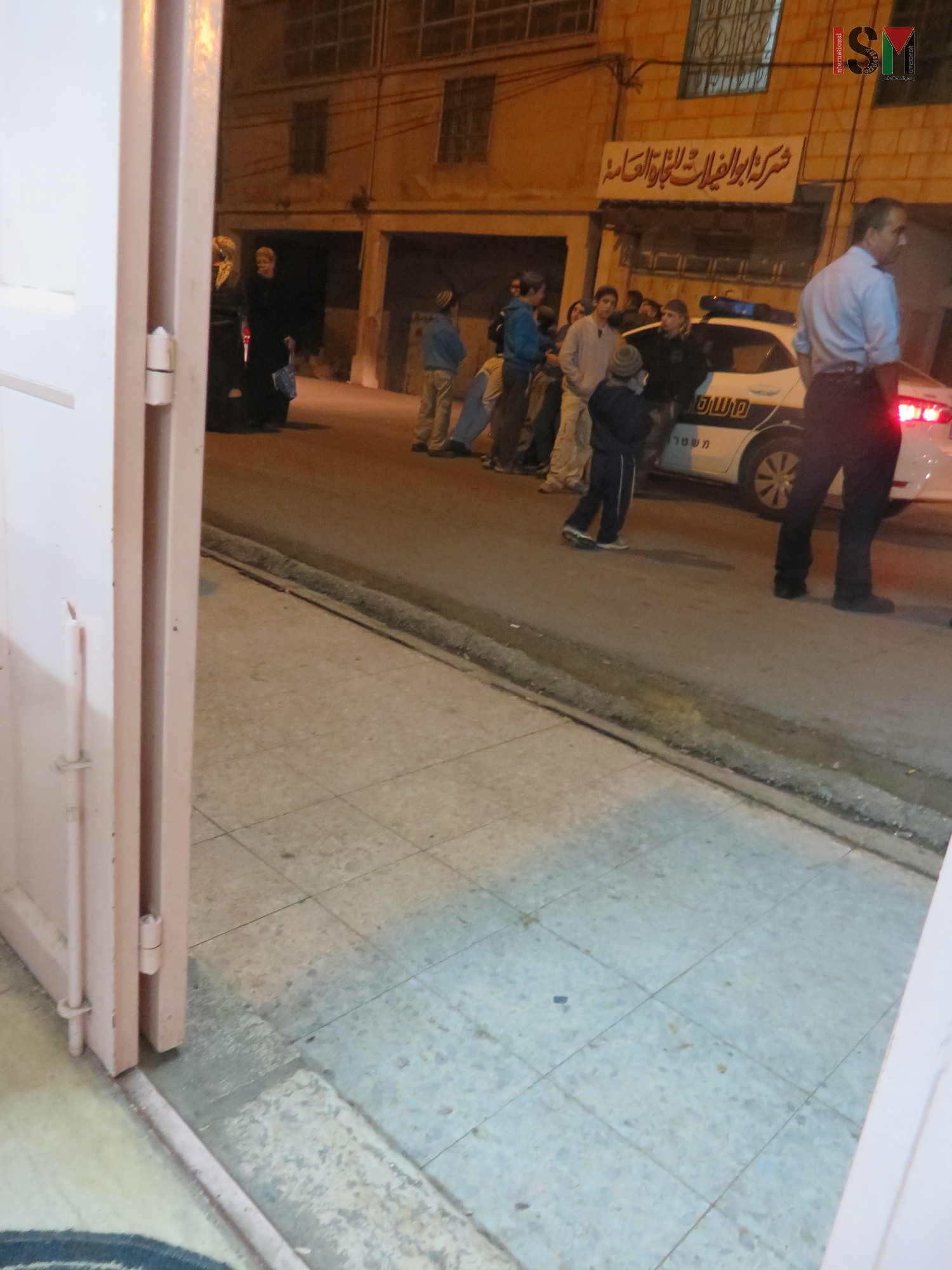Tag: Settlement
-
Constant settler harassment for Palestinians in Shuhada Street
30th October 2015 | International Solidarity Movement, al-Khalil team | Hebron, occupied Palestine Wednesday 28th in the evening activists from the International Solidarity Movement once again received a call from local shop owner Ghassan telling that his shop was being surrounded by settlers from the illegal settlements in al-Khalil (Hebron). The settlers were shouting curses…
-
Israeli forces erasing Palestinian lives as if they never existed – 23-year old gunned down in Hebron
28th October 2015 | International Solidarity Movement, al-Khalil team | Hebron, occupied Palestine At 10.30pm last night, Tuesday 27th October 2015, a Palestinian man who has been identified as 23 year old Hoummam Said was shot in al-Kahlil (Hebron) at the Gilbert checkpoint, directly outside the ISM apartment. The man was in the H2 neighborhood…
-
Notorious violent criminal settler Anat Cohen assaults and terrorizes internationals again
27th October 2015 | International Solidarity Movement, al-Khalil team | Hebron, occupied Palestine During the last two days international human rights activists have repeatedly been attacked verbally and physically by infamous illegal settler Anat Cohen. At 7:15 this morning, Anat Cohen emerged from Beit Hadassah illegal settlement in Tel Rumeida onto Qurtuba checkpoint, where two internationals…



